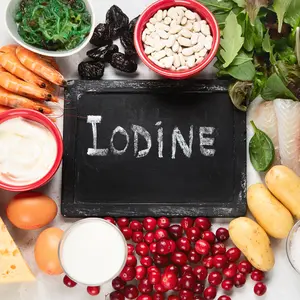

Food, Farming and Nutrition

Food, Farming and Nutrition
Astaxanthin, "King of Anti-Oxidants"
Astaxanthin is a reddish-orange pigment and nutrient in the carotenoid family, the same group that gives carrots their bright color. It is naturally produced by microalgae, yeast, bacteria, and some fungi. When fish and shellfish such as salmon, trout, or shrimp eat these microorganisms, their flesh takes on a pinkish-red hue. For human use, the richest natural source is the microalga Haematococcus pluvialis, which is used to produce supplements. Although astaxanthin can be made synthetically, natural forms are considered more effective.
How Astaxanthin Works
Astaxanthin is a potent antioxidant. Antioxidants protect cells by neutralizing unstable molecules called free radicals that can damage DNA, proteins, and fats in the body. This type of damage contributes to aging and many chronic diseases. Astaxanthin stands out because unlike other antioxidants, it can act across cell membranes, offering protection both inside and outside cells. Research shows it is significantly stronger than vitamin C, vitamin E, or beta-carotene. Because it is fat-soluble, it is best absorbed when taken with food that contains healthy fats.
Health Benefits of Astaxanthin
Healthy aging and energy: Astaxanthin helps reduce oxidative stress, a key driver of aging. It supports mitochondria in producing cellular energy, and may lessen fatigue while improving muscle function and recovery.
Brain health: Because it can cross the blood-brain barrier, astaxanthin may protect brain cells from oxidative damage. Human studies suggest it may slow age-related memory decline and support cognitive function, with potential benefits for dementia prevention.
Skin health: Sometimes called “nature’s Botox”, astaxanthin improves skin elasticity and moisture, reduces wrinkles and age spots, and protects against damage caused by UV rays. Benefits are seen both with oral supplements and topical creams.
Heart and metabolic health: Astaxanthin supports healthy cholesterol and triglyceride levels, may improve circulation, and protects the cardiovascular system. It also helps regulate blood sugar and reduce fat accumulation, showing benefits for people with diabetes.
Immune and anti-inflammatory effects: Astaxanthin helps balance immune responses, reducing unnecessary inflammation. Early research suggests potential benefits for conditions linked to chronic inflammation.
Eye health: Astaxanthin protects against oxidative damage in the eyes, supports blood flow in the retina, and may slow progression of age-related macular degeneration.
Astaxanthin is a naturally occurring antioxidant found in algae and seafood. It plays a protective role in healthy aging, skin and brain function, cardiovascular and metabolic balance, immune resilience, and eye health. While ongoing studies continue to explore its full potential, current evidence supports astaxanthin as a promising supplement for long-term wellness. Before taking any supplement, consult with a healthcare provider and consider interactions with other medications.


 By
By







